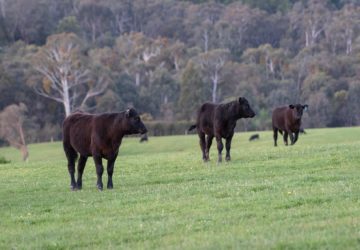Selling your farm is an important step that can’t be improvised. Here are our 10 tips from the experts.
1 – Assessing the market value of your farm property
The sale price should be as close as possible to the market value. It’s important to get help with the valuation process, so that you can match buyers’ expectations and possibilities as closely as possible.
Don’t hesitate to approach third-party organisations (accountancy agencies, specialist agencies, etc.) that are familiar with the local market and can provide you with effective guidance.
2 – Farm staging
As with a house, the impression left in the first few minutes of a visit is crucial. Cleaning, tidying up and arranging the surroundings are essential preconditions for a good sale. Put all the chances on your side!
3 – Write your property ad carefully
To attract candidates, the text of the advert (like the photos) should be carefully and rigorously written, with as much information as possible about the farm, its surroundings, its prospects…
Don’t hesitate to ask for outside help with writing and proofreading if you need it. And watch out for spelling mistakes!
4 – Mastering agricultural regulations
Farms are businesses subject to a wide range of regulations, particularly in terms of the environment. Compliance with these rules is vital to the running of the business, especially when it comes to selling it.
Get support from organisations that specialise in each of these regulations, so that you can move forward with your sale with peace of mind!
5 – Preparing and organising visits
Visiting a farm property may seem like a simple step, but it’s not. The way the visit is organised, the time you spend there, the information you need to pass on and gather about the buyer and his plans, and the way you listen and ask questions are all points you need to master to get the best out of the visit.
It’s crucial to let the buyer get to know the farm without putting yourself forward, so that they can plan ahead.
6 – Anticipating the duration of a farm transfer
Selling on your own? Why not, but be careful how much time you devote to it. You don’t want to do it at the expense of your day-to-day work. And doing it too early or too late will also have consequences.
We can advise you to start looking into the matter at least 5 years before you decide to stop working, wherever possible of course.
7 – Check the solvency of prospective buyers
All too often, we still come across sellers who have wasted 6 months, 1 year or 1 1/2 years with a candidate who could not be financed.
It’s essential to surround yourself with as many financial guarantees as possible, so as not to lose precious time in your sales timetable.
And beware of dreamers!
8 – Challenging yourself
Despite numerous visits, no candidate makes an offer. If a farm isn’t selling, there are reasons, and you need to know what they are. You need to talk to each applicant and accept their comments, even if you don’t agree with them. And then remedy or compensate for the problems raised. Sometimes a ‘detail’ can unblock the situation.
9 – Carry out all the property surveys beforehand
It’s a costly and time-consuming process, and it’s tempting to carry them out at the last minute to avoid unnecessary expense. Beware of the buyer’s disappointment if he discovers the presence of asbestos in a house or the need to redo the drainage system at the last minute. This could lead to negotiations being reopened, or worse, to the project being abandoned!
Get it done as soon as possible!
10 – Use a specialist agency
As you will have realised, selling a farm requires experience and expertise that a seller will rarely have. That’s why you need to surround yourself with specialists who can guide sellers and buyers through every stage and provide them with the legal certainty they need.
Choose an estate agency that specialises in farm transfers, has experience and is able to support you throughout the transaction.
Mickaël Jiquel, nov.2020
Pour aller plus loin

Transferring ownership through a specialist firm: a successful operation at the Mottay farm

